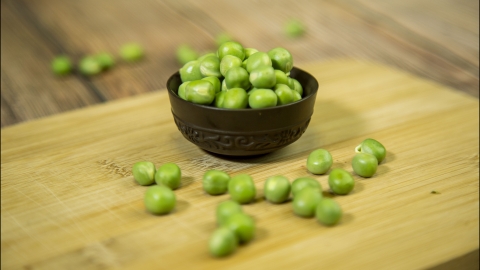Can peas and corn be eaten together?
Generally speaking, peas and corn can be eaten together, but it is not recommended to consume them in large amounts. The detailed analysis is as follows:

Peas and corn can be safely consumed together, as both are common coarse grains primarily composed of carbohydrates, dietary fiber, vitamins, and minerals. There are no components that conflict with each other or produce harmful substances when eaten together, so combining them does not negatively affect health. Nutritionally, peas are rich in high-quality plant protein and B-complex vitamins, while corn contains lutein, zeaxanthin, and dietary fiber. When combined, they complement each other nutritionally, offering more comprehensive nutritional support. In terms of texture and flavor, peas are soft and slightly starchy, while corn is sweet and refreshing. When cooked together in dishes such as stir-fried diced vegetables or corn and pea soup, they create a harmonious and layered taste profile, making this a safe and widely used combination in daily diets.
When consuming peas and corn, take note of the following: fresh ingredients should be thoroughly washed; dried peas and dried corn must be fully soaked beforehand to ensure they are completely cooked, avoiding indigestion caused by undercooking. Consumption should be moderate, as both are high in dietary fiber—excessive intake may lead to bloating, especially for individuals with weak digestive systems. Cooking methods should be light, minimizing the use of oil and salt. It's best to pair them with meat or vegetables to maintain a balanced diet, and avoid eating large quantities on an empty stomach to prevent gastrointestinal discomfort.




